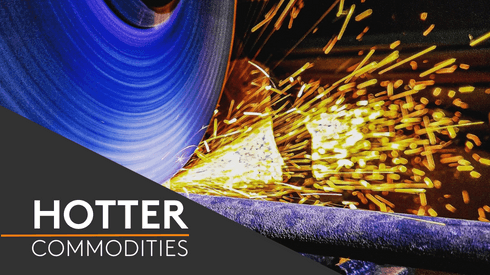The US will implement a “melt and pour” requirement for imports of steel articles that are products of Mexico and will increase the section 232 duty rate for imports of steel articles and derivative steel articles that are products of Mexico that are melted and poured in a country other than Mexico, Canada or the US, according to the White House statement.
Under the new policy, Mexican steel imports will face a 25% tariff under Section 232, unless the steel is documented to have been melted and poured in Mexico, the US or Canada.
For aluminium imports from Mexico, they must not contain primary aluminium that was smelted or cast in China, Russia, Belarus or Iran to avoid facing a 10% tariff.
In May, the US administration announced new tariffs on a number of goods from China, including steel and aluminium. The move was largely seen by Chinese industry participants as affecting indirect exports, goods that contain steel and aluminium, into the US.
Importers of the metals into the US will need to provide US Customs and Border Protection (CBP) the country of origin of the steel used.
Mexico has also agreed to require importers of steel products across its borders to provide more information on the country of origin of these products, US President Joe Biden and Mexican President Andres Manuel Lopez Obrador reportedly said in a joint statement.
Mexico also agrees to raise tariff rates on steel exports into Mexico from countries without free trade agreements.
“These are important steps critical to stopping unfairly traded steel crossing our border from Mexico,” Phil Bell, president of the Steel Manufacturers Association (SMA), said on Wednesday.
The move was widely lauded by the US steel industry, pleased to see the administration’s support for the domestic steel and aluminium industries.
“Strengthening the ‘melted and poured’ and ‘smelted and cast’ rules for steel and aluminium is a step forward in countering China’s predatory trade practices and making North American steel trade fairer,” Scott Paul, president of the Alliance for American Manufacturing, said in a statement on Wednesday.
Biden is helping to “close loopholes in the United States-Mexico-Canada Agreement (USMCA) that allowed for foreign steel and aluminium to enter the United States through Mexico without significant value being created in that country,” David McCall, United Steelworkers union (USW) international president, said on Wednesday.
Kevin Dempsey, president and chief executive officer of the American Institute of Steel and Iron (AISI), echoed that the move will help “close a loophole in the Section 232 program” that has allowed steel produced outside of North America to avoid the steel tariffs by shipping via Mexico for further processing before being exported to the US.
The US steel industry has previously expressed concern about steel, auto parts and manufactured products from China and other nations being routed through Mexico into the US, and some producers have expressed support for a bill by Senator Brown of Ohio to “reinstate the Section 232 tariffs on Mexican steel, imposing a 25% tariff on Mexican steel for at least a year.”
“The Aluminum Association applauded a plan announced today by the United States and Mexico to combat the impact of unfairly traded aluminium in North America,” the association said in a statement.
The announcement will help to safeguard North America “as one of the best places in the world to make aluminium and aluminium products,” with North American firms producing some of the lowest carbon aluminium in the world, according to Charles Johnson, president and CEO of Aluminum Association.
“By working with our fellow USMCA countries on strong trade enforcement, we can help drive continued growth and investment in the region – creating jobs and capturing increased demand expected in the coming years,” Johnson said.
“This plan is an example of how regional cooperation still works. We appreciate the administration’s hard work on this issue and look forward to working with them on a robust implementation plan,” he added.
The impact of the tariffs on the US aluminium market is yet to be seen, a market participant said.
“People remelt and rebrand all of the time. We will have to see as time goes on if there is an impact,” they said.
In April, the Mexican government announced it was establishing temporary tariffs on the import of steel and aluminium goods from China.
The country partially revoked the tariffs in early May following complaints from the local industry.
We provide more than 250 steel prices, including industry benchmarks from across the globe. Fastmarkets’ steel price data combines the intelligence of industry-leading brands such as Metal Bulletin, American Metal Market, Scrap Price Bulletin and Industrial Minerals. Talk to us about our steel price data options today.





